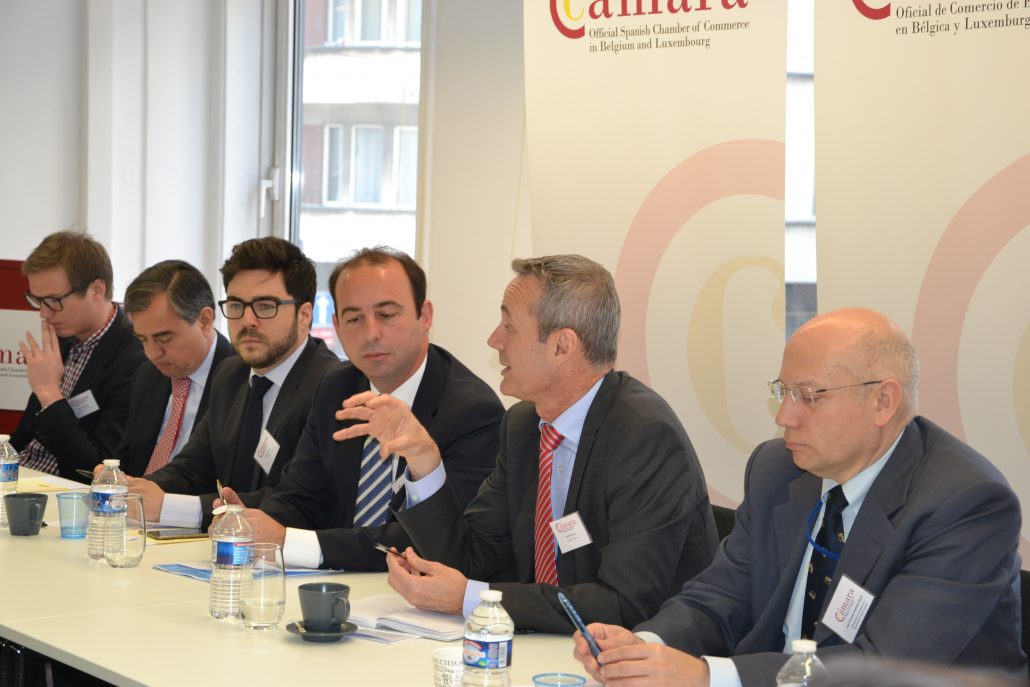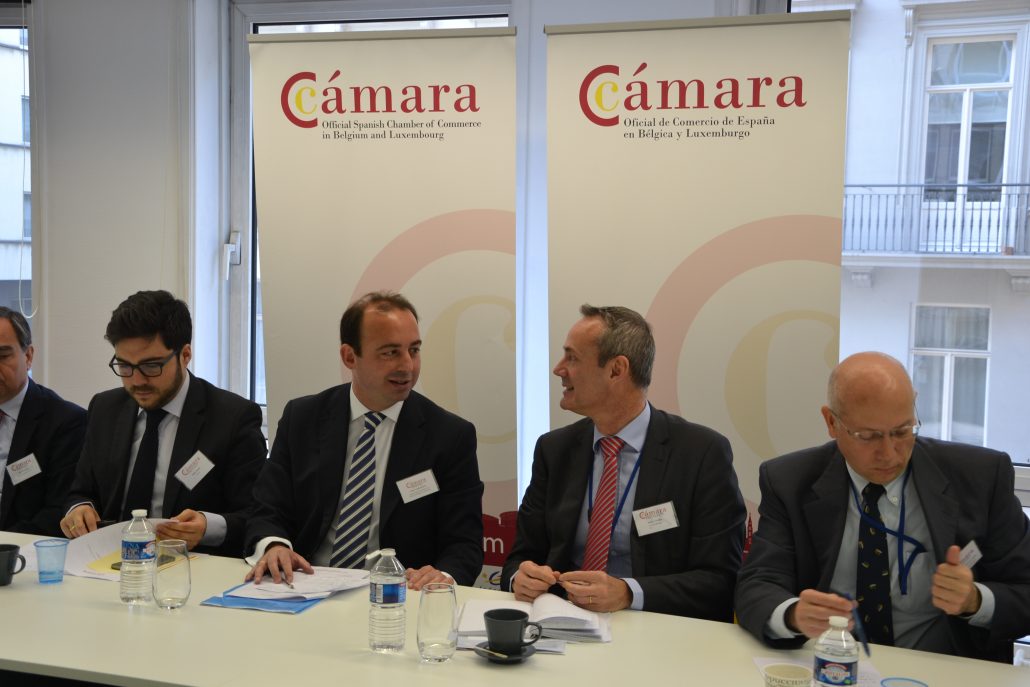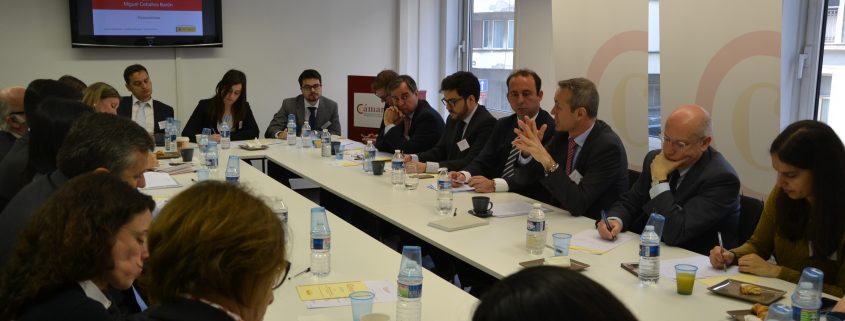Breakfast-debate with Miguel Ceballos Barón, Deputy Head of Cabinet of the commissioner Cecilia Malmström
Last April 20th the Official Spanish Chamber of Commerce in Belgium and Luxembourg organized a breakfast-debate about “the commercial agenda of the European Union in 2017”. The event took place at the Chamber’s headquarters in Brussels, with Miguel Ceballos Barón, Deputy Head of Cabinet of the commissioner Cecilia Malmström as the main speaker. At the event, there were members of the Chamber, business executives and representatives of European institutions and delegations.
 Pablo López Álvarez, Vice President of the Chamber, made a brief introduction of the speaker, thanking him and all the attendees for his presence, as well as the importance of the commercial agenda in the current difficult international context.
Pablo López Álvarez, Vice President of the Chamber, made a brief introduction of the speaker, thanking him and all the attendees for his presence, as well as the importance of the commercial agenda in the current difficult international context.
Then, Miguel Ceballos began his intervention making a synthesis about the current context and the determining issues in the commercial field, like the beginning of Donald Trump’s legislature and the recent signing of an executive order to review a temporary visa programme used to place foreign workers in high-skilled US jobs. Between others, he underlined the Turkish referendum, the upcoming elections in France and the UK and the Brexit.
Furthermore, Ceballos explained the main commercial challenges at a European level, going through the different continents and the evolution on free trade agreements. He remarked, in first place, the Comprehensive Economic and Trade Agreement (CETA) which, after the stoppage of the Transatlantic Trade and Investment Partnership (TTIP) with the United States, stands up as one of the most important agreements for our exportations and companies, mostly in the public services sector, such as water or energy. Plus, the CETA assures an access to Canadian tenders avoiding big competitors such as China and Mexico.
On the other hand, the speaker explained the recent developments in different agreements such as in Mexico, in which they pretend to remove sanitary barriers for farming products, as well as improving the investment agreement, underlining the sectors of energy, telecommunications, financial and oil. Regarding Chile, Ceballos highlighted the modernization phase of the current agreement and their will to increase the services,
Regarding the Asian continent, Ceballos underlined the already stablished agreement with Japan, hightlighting the competitive advantage the UE has in this market as a consequence of the TTIP stoppage, avoinding the competence of USA, Australia or New Zealand. Moreover, he wanted to mention Singapur, which he defined as a small economy with a lot of potential for commercial relations in the future. On the other hand, he informed about the agreement with Vietnam, which is currently being translated and will be presented to the Parliament soon.
At last, Miguel Ceballos assured the importance of the agreement with the Mercosur countries (Brazil, Argentina, Uruguay and Paraguay) which gather more than 250 millions of consumers similar to Spanish consumers, which turns out to be specially interesting for commecialization in all sectors.
The launching of this agreement, expected by the end of 2017, would imply a 400 millions of euros savings for Spain, which they are currently investing in custom fees. The new agreement pretends to increase transparency and objectivity of commercial relations.
Miguel Ceballos finished his intervention  underlining the importance of the current political and social background, and the evolution of commercial agreements through the years, which include more regulations every day, like social and environmental dumping. As examples, he mentioned anti-corruption in the Mexico agreement and the gender issue with Chile. Finally, he thanked everyone for their presence and the contribution of the Chamber and the Spanish companies in the commercial field.
underlining the importance of the current political and social background, and the evolution of commercial agreements through the years, which include more regulations every day, like social and environmental dumping. As examples, he mentioned anti-corruption in the Mexico agreement and the gender issue with Chile. Finally, he thanked everyone for their presence and the contribution of the Chamber and the Spanish companies in the commercial field.
After the speaker’s interventions, our Vice President Pablo López opened the debate, which was marked by a high participation of the attendees. Between the main issues, the topics were the resistance to the inclusion of financial services in trade agreements, the recently presented White Paper of the European Union and, most importantly, the future of the United Kingdom after Brexit.
Moreover, there was a discussion on the issue of the agreements of the African continent, in which Ceballos highlighted the agreement with South Africa, and the progress on the ones with Namibia, Botswana, Mozambique and Ghana. At last, they referred to the commercial agenda of growing countries, mentioning the asymmetric agreement with the Caribbean area.






